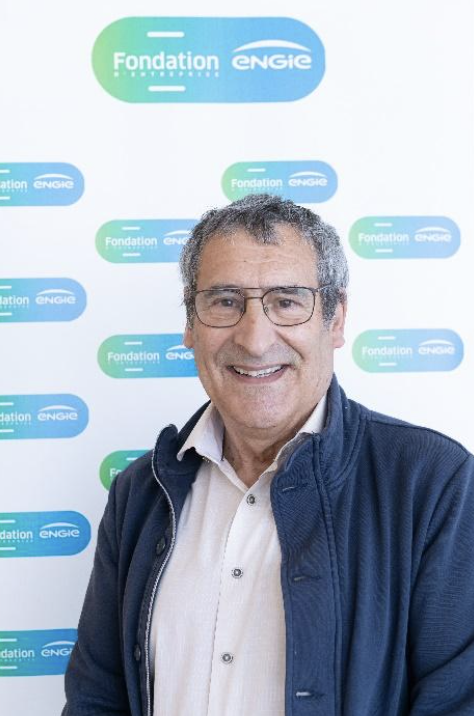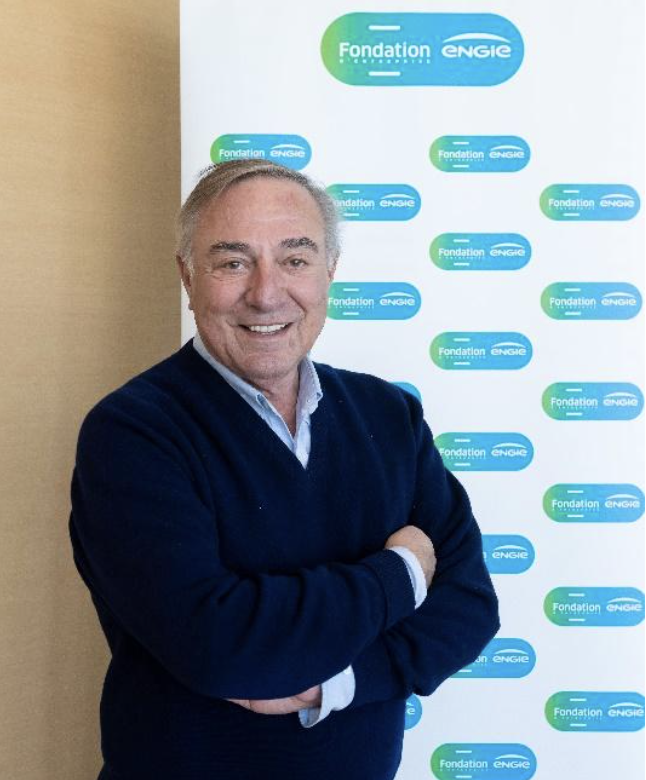Meeting with 2 administrators committed to biodiversity

Gilles Bœuf, Professor emeritus at Soborne University, member of the Scientific Council of the French Office of Biodiversity (OFB), President of the Center of Study and Expertise on Biomimetism (CEEBIOS), administrator of the ENGIE Foundation.
“Let’s treat the issue of biodiversity on the same level as the issue of climate change. The urgency is just as strong and the two are linked.”
Gilles Boeuf is a director of the ENGIE Foundation and a specialist in environmental physiology and biodiversity. Professor emeritus at Sorbonne University (Pierre and Marie Curie University, UPMC), assigned to the Oceanological Observatory of Banyuls after spending 20 years at the IFREMER.
IFREMER in Brest (French Research Institute for Exploitation of the Sea). He was President of the National Museum of Natural History (MNHN), between 2009 and 2015. He was also a visiting professor at the Collège de France for the academic year 2013- 2014, in the “Development of the Sea” Chair.
2014, on the Chair “Sustainable development, energy, environment and societies” and had then dedicated his teaching to the interactions between biodiversity and humanity. He was for two years scientific advisor to the cabinet of the Minister of the Environment, Energy and the Sea. Today he is member of the Scientific Council of the French Office of Biodiversity, visiting professor at AgroParisTech and president of the SCIC CEEBIOS, dedicated to biomimicry. In 2013, he was awarded the Albert I Great Medal of Monaco for his entire career, dedicated to the seas and the ocean. He is a Regional Councillor for Nouvelle-Aquitaine, in charge of the “One health” program.
✷ What is your view of biodiversity?
An alarmed and alarmist view….The beginning of the 21st century is marked by a collapse in the number of individuals living in wild natural populations. This is a major scientific fact. Let’s take an example: in 18 years, we have lost 30% of birds in some agricultural areas.
However, today, the debates and the attention of the general public are focused on the climate.
Everyone recognizes that climate change affects living organisms. We forget the opposite: the living that goes away affects, in return, the climate. Overfishing reduces the ocean’s capacity to store CO2. Even though the oceans store about 30% of the carbon that we emit in excess. Climate and life: same fight! This is the mindset we need to have.
✷ What reasons explain the collapse of biodiversity and what are the threats?
The pure and simple destruction of ecosystems is the first threat to living things. It is responsible for two-thirds of the erosion of biodiversity. This is what we call the artificialization of soils, urbanization or the destruction of the coastline.
The second threat is contamination and pollution, in which agriculture has its share of responsibility. We have killed half the soil on this planet. We have grown to 8 billion human beings in the last few weeks. How can we feed this population with dead soil? It is impossible. We have to put some life back into it.
Third threat: the dissemination of species is a threat to life. Many species are transported. At the marine level, the hulls and ballasts of ships carry species across all the seas. Or they have been voluntarily introduced for fishing and colonize
the waterways. Catfish originating from Eastern Europe eat for example small salmon, shad and sturgeon.
Overexploitation is the fourth threat to biodiversity. The example of tropical forests is typical. As far as we know, they contain more than half of the known living species on Earth. And they are disappearing at about the speed of the surface of Great Britain every year. These large biodiversity basins can be counted on the fingers of one hand. There is the Congo Basin in Africa, the Amazon and the large islands of Papua New Guinea and Borneo. Overexploitation also concerns marine fisheries: humans take more than nature is capable of renewing. This is one of the properties of living beings, being renewable. But the current tragedy is that we are exceeding the thresholds of natural renewability of the Earth. We must fish, yes, but overfishing is stupid. With aquaculture, this represents a little more than 200 million tons per year, in spite of the fact that the stocks are more and more pressed. Illegal fishing is massively practiced.
Fifth threat: the much too rapid evolution of the climate. I don’t put climate as the primary cause of the collapse of life. But it could become important. … Bacteria, viruses, fungi, plants, animals… There is a general migration northwards in the northern hemisphere,
and southward in the southern hemisphere. This is related to the temperature of the water mass, the air temperature but also to the lack of water. The tiger mosquito has spread northward to 22 departments in France this year, causing an increase in dengue cases.
✷ What measures to take?
Europe is rather more advanced than the rest of the world on environmental issues.
Policies are not new: there is the Water Framework Directive, the Birds Directive, all the Natura 2000 projects… but, it is sometimes timid, as on pesticides. We need to move a little more and think about externalities. Pesticides have consequences on biodiversity and we have never consumed so much of them. The problem is also to find governance. International governance on these subjects is complex to implement.
✷ What do you expect from the actions led by the ENGIE Foundation?
The ENGIE Foundation is already very active on climate and biodiversity issues. We have had the opportunity to analyze various projects in recent years and we must continue. Today, these questions are essential for the well-being and the future of our fellow citizens and it is of course the role of our Foundation to contribute to them on solid scientific bases. The means allocated must be consistent and well targeted. The relationships established with the French Office of Biodiversity and the National Museum of Natural History are essential.

Allain Bourgain Dubourg, President of the League for the Protection of Birds and of the Strategic Orientation Council of the Foundation for Research on Biodiversity (FRB), Director of the ENGIE Foundation.
A pioneer in the field of environmental commitment, for more than 30 years Allain Bougrain Dubourg has presented animal-related programs on television and radio, notably on France Télévision, France Inter and RTL. Producer and director of numerous animal documentaries, he has just published a “Dictionnaire amoureux des oiseaux”. An inspiring figure, he has contributed to making ecology a mainstream issue. As a director of the ENGIE Corporate Foundation, he participates in the choice of projects carried
✷ You call for greater awareness of living things and a necessary change in human behavior.
The recent appeal by the “15,000 Scientists for the Planet” pointed to two obvious causes that explain the decline of living things: overpopulation on a planet with limited resources and intensive agriculture.
In both cases, we note that the idea of respect for life remains secondary, even inappropriate, in relation to productivist objectives. We must end this and consider that our dominant position on earth should not exonerate us from the respect we owe to other species. I would even say that our status obliges us to be compassionate. We cannot add unnecessary suffering to the need to kill! At the beginning of the 21st century, an awareness seems to be emerging but the retrograde lobbyings keep a power of resistance which postpones the deadline for change. The latter will be done step by step, sector by sector, under pressure from public opinion. The field of consumption can be a determining factor in this process, which is why we must fight for true traceability including animal welfare.
Basically, each citizen has the power to change… To quote Pascal: “the intuition of the heart leads to reason”.
✷ What do you expect from the actions of a Foundation, like the ENGIE Foundation?
First of all, the Foundation’s support for a project is a recognition of its value and of the actors who carry it. It obviously allows to develop the ambition of the action thanks to the granted budgets. Finally, it creates a link between the goodwill that animates the company. I am particularly sensitive to the ENGIE Foundation’s investment in the preservation of biodiversity, which suffers from a lack of attention compared to the climate issue. The education sector on this theme seems to me a priority.
